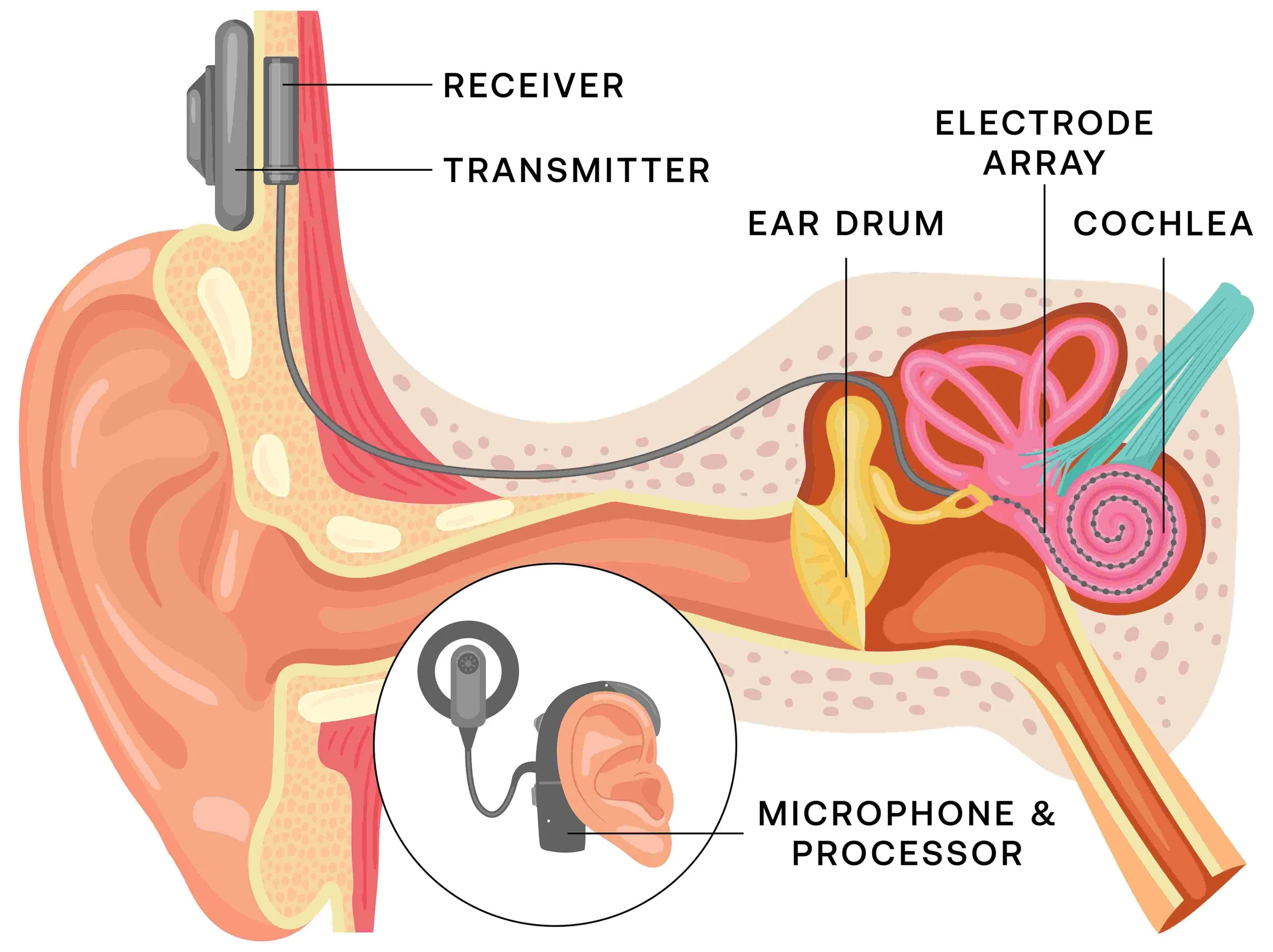Instead of making sounds louder, cochlear implants bypass the damaged parts of the inner ear and send signals directly to the brain, allowing individuals to perceive sound more clearly. Credit: iotaMotion
By iotaMotion
For many people with hearing loss, hearing aids are the first solution they try—and for good reason. But what happens when hearing aids are no longer enough? If you struggle to hear even with the highest volume settings or find yourself relying more on lipreading, a cochlear implant may be the next step.
Cochlear implants work differently from hearing aids. Instead of making sounds louder, they bypass the damaged parts of the inner ear and send signals directly to the brain, allowing individuals to perceive sound more clearly. Most recipients benefit from and are satisfied with their cochlear implant, according to a 2023 survey by the American Academy of Audiology.
If you’re unsure whether a cochlear implant is right for you, here are four reasons to explore this life-changing technology.
1. You Struggle to Hear Even With Hearing Aids
Hearing aids are great for amplifying sound, but when hearing loss progresses to a moderate to severe level, amplification alone may not be enough. If conversations sound muffled, or you constantly ask people to repeat themselves, a cochlear implant could help you hear more clearly, even in noisy environments.
2. You Miss Out on Important Conversations
Hearing loss can make it difficult to connect with loved ones, leading to frustration or isolation. If you avoid phone calls, struggle to follow group or work conversations, or feel left out in social settings, a cochlear implant can bridge the gap. Many recipients say that regaining the ability to hear speech clearly has improved their relationships and overall quality of life.
3. Untreated Hearing Loss Can Affect Brain Health
Hearing loss isn’t just about your ears—it’s linked to cognitive health. Research, including a 2020 report from The Lancet Commission on Dementia Prevention, has identified hearing loss as one of the top risk factors for dementia. By improving access to sound, cochlear implants may help support brain function.
4. Robotic-Assisted Surgery Is Now Available
With today’s advanced technology, cochlear implant surgery can be done with even greater precision, helping patients get the best possible outcome. Traditional cochlear implant surgery relies on manual insertion. However, robotic assistance with the iotaSOFT® Insertion System enables surgeons to insert the electrode array at speeds that are consistently slower than the human hand can achieve. Studies have shown that reducing and controlling the speed of insertion can reduce trauma to the cochlea.
Next Steps
If you’re relying on hearing aids but still struggling, it may be time to explore cochlear implants. The first step is a consultation with an audiologist, who can assess your hearing and determine if you’re a candidate. Then, you can talk to a trusted surgeon about surgery.
Take the next step toward clearer sound and a more connected life: Watch one individual’s cochlear implant story here.
This is sponsored content from iotaMotion. The content of this blog is for informational purposes only. It is not intended for use as diagnosis or treatment of a health problem or as a substitute for the professional consultation of a physician or qualified health care provider. If you have specific questions or concerns regarding a health or medical condition, contact your physician or a licensed health care professional.








I made one hat to solve problems, never imagining how many other adults and children would relate. It’s an honor to be able to give something back to the cochlear implant community that understands this journey so well.